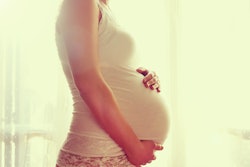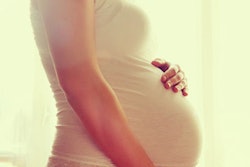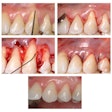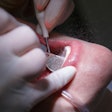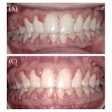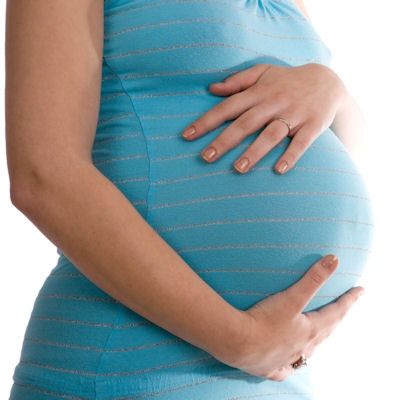
A recent study has linked periodontal disease during pregnancy to worse health outcomes for both mothers and their children. The authors called for more oral health outreach efforts to address this preventable and treatable health-related pregnancy risk.
After studying the medical records of more than 100 women, the researchers found women with severe periodontal disease during pregnancy were more likely to experience premature membrane rupture, or water breaking, and inflammation of the vulva and vagina. Their offspring also were more likely to experience fetal growth restriction.
"Severe periodontal disease increased the chance of neonatal and maternal negative outcomes, such as fetal growth restrictions, vulvovaginitis, and premature rupture of the membrane," wrote the authors, a team of researchers from the pediatrics department at the Botucatu Medical School in Brazil (PLOS One, November 22, 2019). "Our results highlight the importance of these studies on periodontal disease during pregnancy and the relevance of evaluating oral health during prenatal care."
“Our results highlight the importance of these studies on periodontal disease during pregnancy.”
Pregnant women are already more susceptible to periodontal disease in part because of high estrogen and progesterone levels. Periodontal disease in pregnant women may also trigger or worsen other inflammatory conditions, and previous research has linked periodontal disease to preterm delivery, gestational diabetes, and preeclampsia.
The researchers studied the potential health consequences of periodontal diseases during pregnancy on maternal and infant health. Their study included 138 pregnant women who gave birth at a hospital in Botucatu, Brazil. The women were all in good general health in the second trimester of pregnancy.
About two-thirds of the women experienced periodontal disease during their pregnancy, and 18% had severe periodontal disease. Experiencing severe periodontal disease proved to have negative consequences for both maternal and newborn health.
The odds of fetal growth restriction was 11 times higher in women with severe periodontal disease than those without periodontal disease. In addition, women with severe periodontal disease were 5.6 times more likely to experience premature rupture of the membrane and 3.5 times more likely to have vulvovaginitis.
"This study evidenced a high prevalence of periodontal disease among pregnant women, and the rates of the severe form are also of great concern," the authors wrote. "Moreover, here is a relation between chronic diseases with low inflammation and the increased risk of developing gestational and neonatal comorbidities, which can be aggravated when they are associated with [periodontal disease]."
The authors noted two key limitations of their research. First, the study included a relatively small sample size, which resulted in a low occurrence of some negative health outcomes known to occur with periodontal disease. In addition, the authors could not determine whether the women received dental treatment following a diagnosis of periodontal disease.
The authors also admonished the lack of research into this preventable and treatable health-related pregnancy risk. They intend to take what they learned from the study and promote more oral healthcare for pregnant women.
"Based on the results of this study, it is our intention to stimulate knowledge, practices, and the perception that the oral health of the pregnant women is very relevant to avoid negative repercussions for the parturient and the newborn," they wrote. "We also intend to promote enhancements in the prevention and treatment of periodontal disease during prenatal follow-up, considering its impact on maternal and child healthcare."





